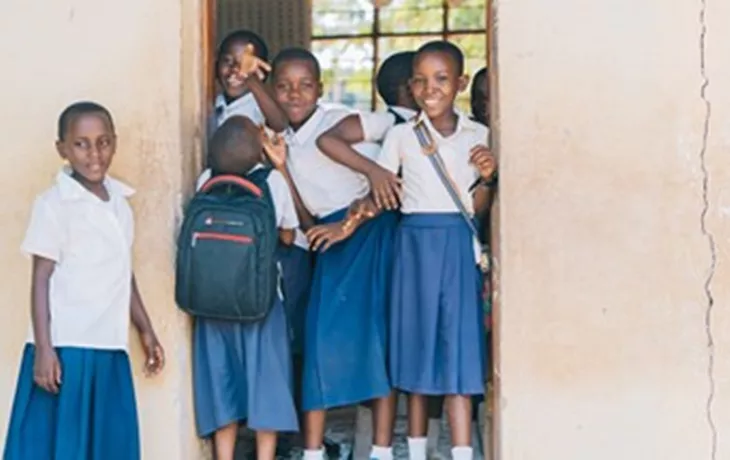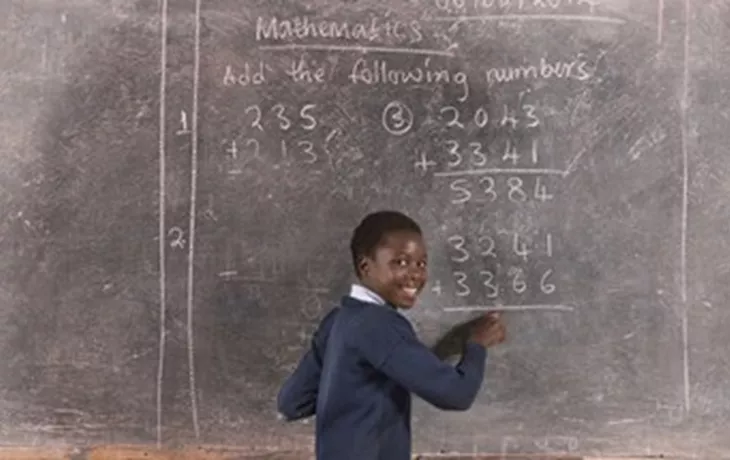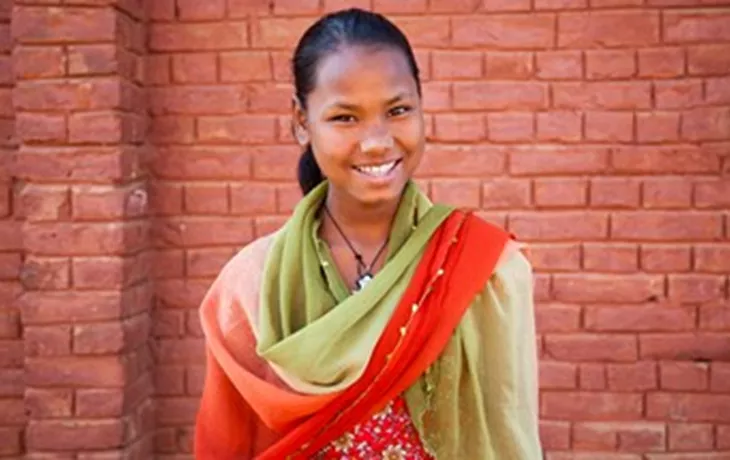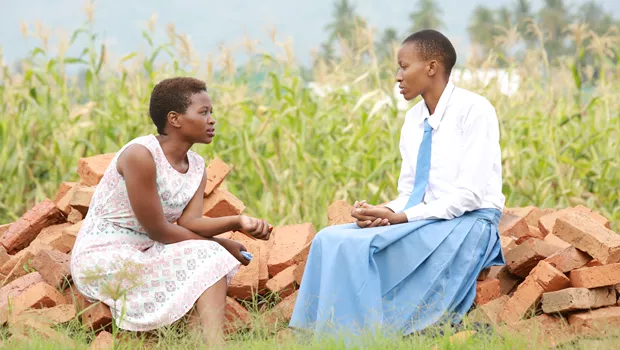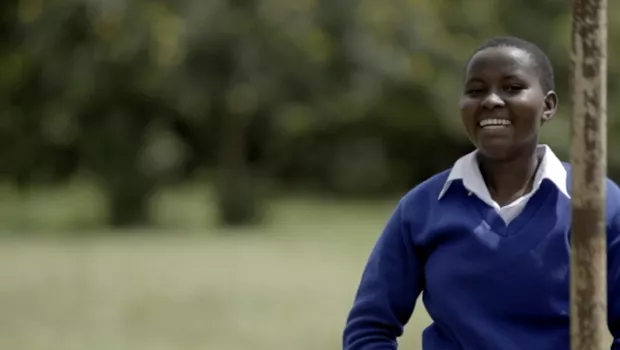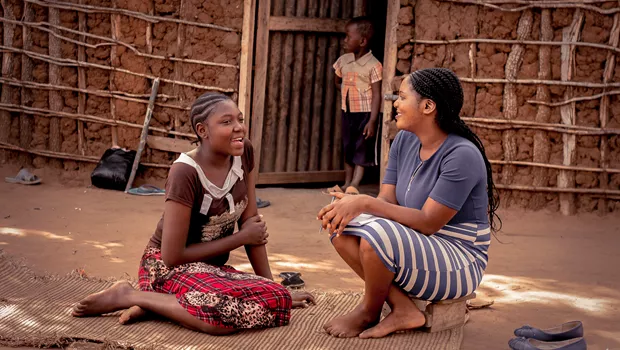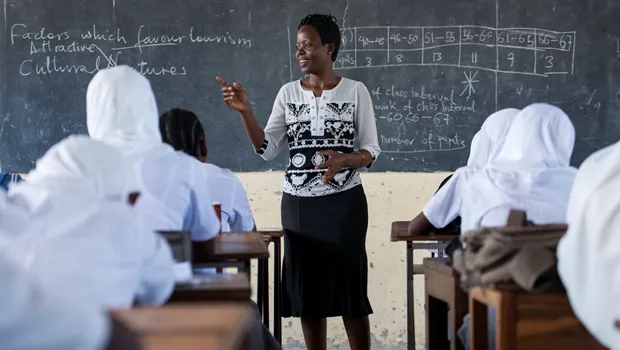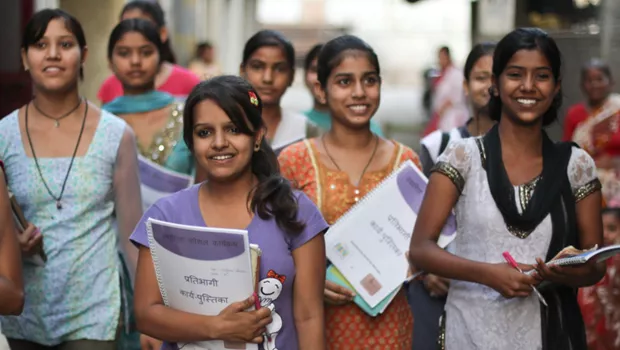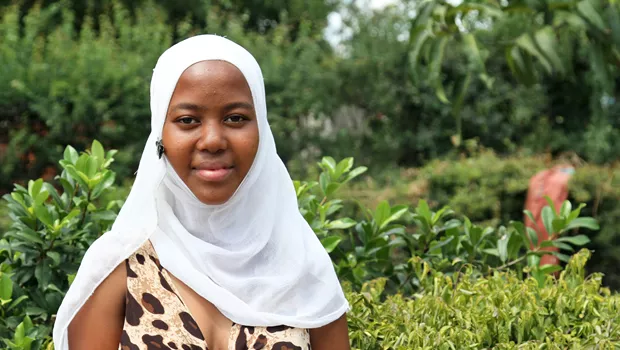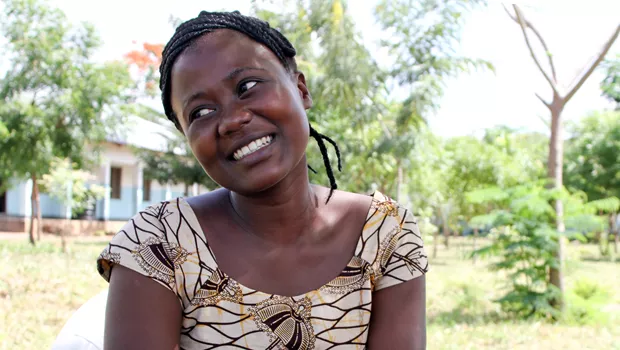If you stroll far enough into the coastal town of Bagamoyo in Tanzania, away from the cultural, tourist and conference hub it has become, you may catch a glimpse of an unusual site — a school whose classrooms are filled with girls, one of them led by Madam Yustina, as her students like to call her.
In Tanzania, 76% of girls are missing out on secondary school, often due to pregnancy and early marriage. As the ‘focal teacher’ at Kiromo Secondary School, which participates in Room to Read’s Girls’ Education Program, Yustina has become a champion for her students — and she’s been helping them stay in school.
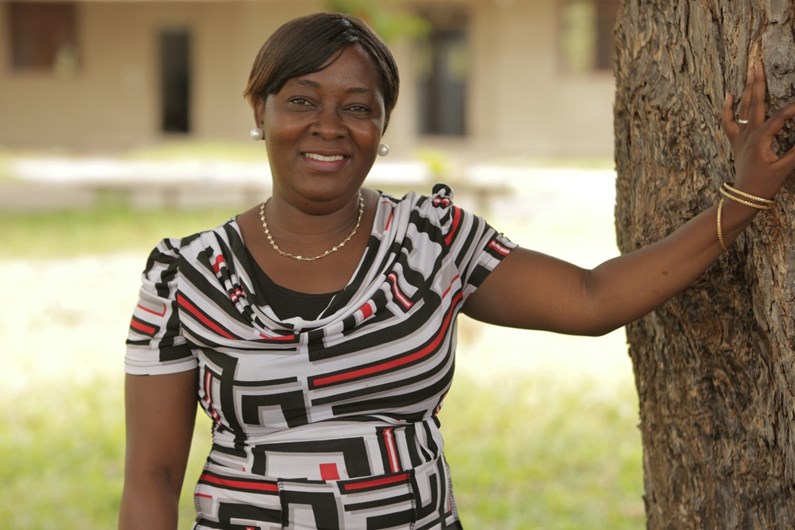
Yustina had to drop out of secondary school when she became pregnant. Now as a teacher and mother of three, she’s devoted to helping girls in Tanzania finish their education.
“When I was 16, I experienced the hardest social challenge any girl would want to avoid — teen pregnancy.” said Yustina, who has been a teacher for eight years, “Ever since then I felt the need to educate our girls before they face these same challenges.”
A familiar face
Most Girls’ Education Program partner schools have a focal teacher — an instructor who acts as the point person for organizing life skills activities at the school. Some focal teachers participate in Room to Read’s training workshops, which include life skills education, child rights, mentoring and gender response. Focal teachers are encouraged to share what they learn with their colleagues to promote knowledge sharing — all of which helps build capacity and sustain the program’s benefits long-term.
In some Room to Read countries like Tanzania, the focal teacher’s role has expanded to include collaboration with the social mobilizers—local women trained by Room to Read to act as mentors and advocates for its Girls’ Education participants.
Focal teachers can be particularly helpful with girls at risk for dropping out since their parents may feel more comfortable speaking with a familiar member of the community. Seeing the students at school each day, focal teachers can also be well-equipped to understand the day-to-day issues the girls may be facing.
Dynamic duo
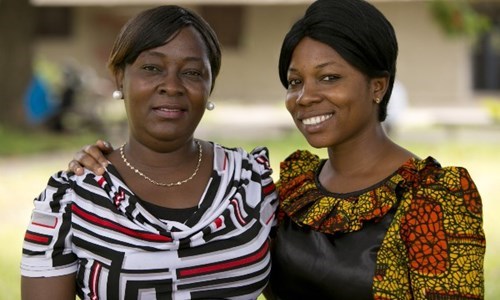 Yustina with Jamila, Room to Read’s social mobilizer at Kiromo Secondary School in Tanzania
Yustina with Jamila, Room to Read’s social mobilizer at Kiromo Secondary School in Tanzania
“Focal teachers are in a unique position,” said Jamila Mrisho, the social mobilizer for the school. “They can act as the link between social mobilizers and the students, alerting us to anything we may have missed, like a girl who suddenly stops coming to class.”
Together, Jamila and Yustina act as a powerful duo in their students’ lives, guiding them through the obstacles faced by girls in low-income countries, where one out of every three is married before age they turn 18. Yustina helps Jamila ensure girls have the support they need, not only from their teachers, but their communities and families as well.
“Eventually, our aim is for every program across our countries of operation to have a focal teacher acting as the main point of contact for the social mobilizers in the region,” said Linda Tran, the program’s global manager.
“Don’t give up”
There was a time Yustina didn’t think of herself as someone who could empower and educate girls. When she became pregnant at 16, she had no choice but to drop out of school. Yustina had dreamed of studying law, but the reality of raising a daughter on her own in Tanzania made that an impossibility.
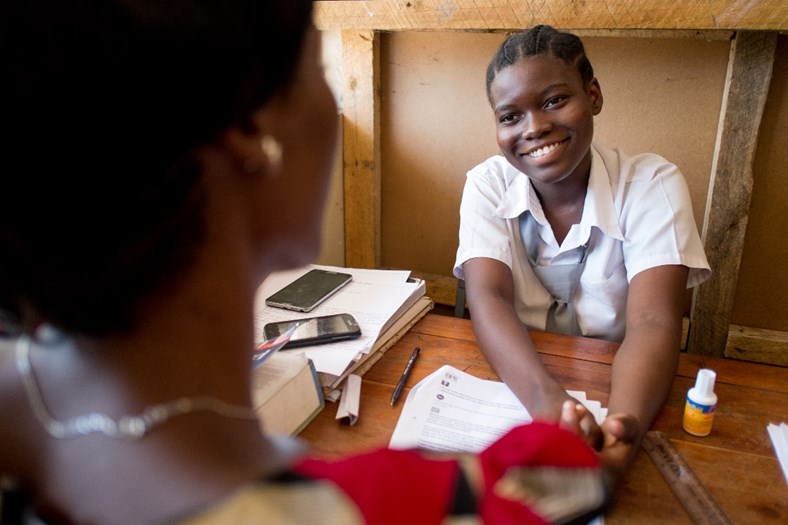 A student in Room to Read’s Girls’ Education Program in Tanzania gets advice from her teacher. Photo: Daniel Hayduk
A student in Room to Read’s Girls’ Education Program in Tanzania gets advice from her teacher. Photo: Daniel Hayduk
Though the road was rough, Yustina eventually finished her education and became a teacher. Today she’s inspired by the opportunities available to girls at Kiromo Secondary School, now that it has partnered with the Girls’ Education Program. Yustina believes her own struggles have made her effective at convincing girls at risk of dropping out not to give up.
For instance, 17-year-old Kidawa, a student in the Girls’ Education Program, was ready to end her education after failing her final exams. When word got to Jamila and Yustina, they both met with Kidawa, and her teacher and parents to convince her not to give up. Bolstered by all the support, Kidawa returned to school with renewed confidence, ready to repeat her exams. She has, she said with a broad grin, every intention of graduating.
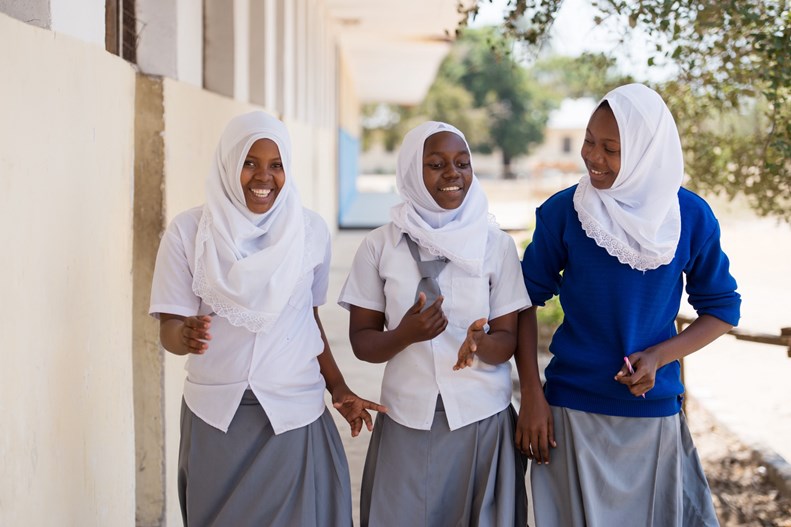
Girls’ Education Program participants in Tanzania head for a Life Skills session. Photo: Daniel Hayduk
An advocate for education
Today Yustina, a married mother of three, is a strong advocate of education as a teacher and a burgeoning leader in her community. She is proud to be able to devote her life to helping girls finish their education and she beams with pride at her now 17-year-old daughter who will soon graduate from secondary school.
“My daughter understands what my life was like as a teen mother, so she studies hard,” Yustina said. “While things were different for me, I’m confident she and the students in the program are on the right path to go to university and follow their dreams.”

